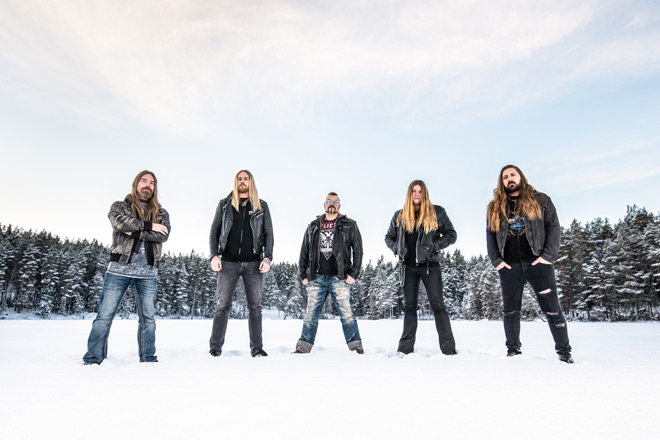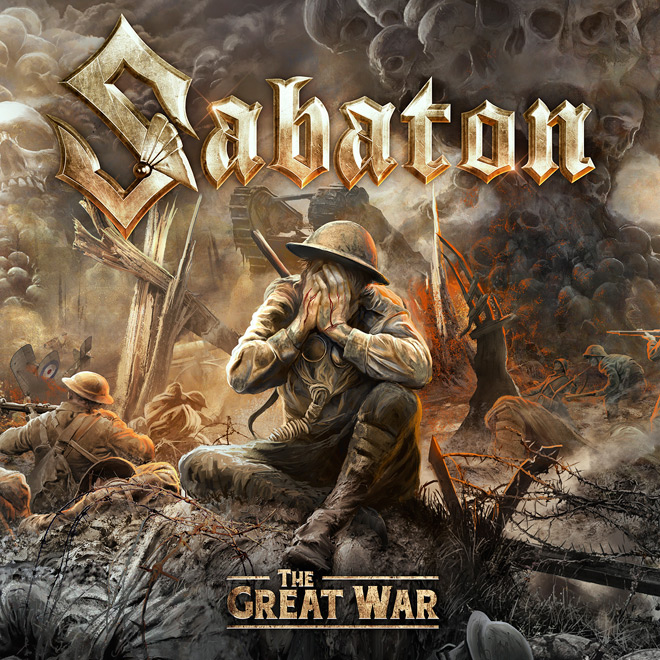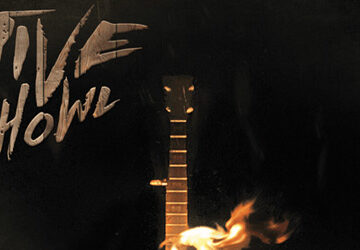
A historical-war Metal band out of Sweden, Sabaton has been scorching international charts for nearly a decade, dating back 2010’s Coat of Arms. Breaking through the US market in a big way with consistent touring since the release of 2014’s Heroes, The Great War marks their ninth overall album and first since 2016’s The Last Stand. Set for release on Friday, July 19th, Vocalist Joakim Brodén, Bassist Pär Sundström, Guitarists Chris Rörland and Tommy Johansson, along with Drummer Hannes van Dahl join forces for an eleven track magnum opus.
Discussing the album, Brodén has stated, “The writing process is always immensely emotional and challenging, but also extremely rewarding ride. And time-consuming… I’m always double-checking just about everything in order to come up with the most fascinating SABATON-manufactured heavy metal ©.“ So the question must be asked, does The Great War truly strive for metal greatness?
With impending drum falls and intense vocal and guitar work interweaving, “The Future of Warfare” certainly starts things off on the right foot. Featuring the typical tense and dramatic pacing that is a signature of Sabaton, it is a perfect opening with its heavy heartbeat and pulsing energy. Following up, “Seven Pillars of Wisdom” comes in hot and heavy with firepower, laden with the story of men entrenched in the war entwined into the drum beats and striking guitars. Furthermore, the emotional element of the story telling carries this song from beginning to end, making it impossible to not pay rapt attention to.
A bit more foreboding than courageous, “82nd All the Way” follows the story of a man from Tennessee who jumps into ‘the fires of hell’ of the first World War. A swift and upbeat underscore to the powerful tale woven by the vocals of Brodén, it is reminiscent of ’80s Thrash more so than its predecessors while uplifting the listener into a song that is tonally lighter than the others. In complete opposite fashion “The Attack of the Dead Men” is ominous with its chanting chorus and heavier rhythm and bleeding, melodic breakdown. Striking, it creates the nightmarish daydream of the bloodied trenches in its historical tragedy.
Then crashing in with a jaunty beat and tempo, “Devil Dogs” is a tale of the US Marines and their trials and tribulations nearing the end of the war. Projecting the feeling of the rough seas in the midst of the ongoing battle, this less ominous sounding and more hopeful song is well paced in the overall picture of The Great War. Moving on, “The Red Baron” pays homage to legendary the ace-of-aces of the war. A rough and victorious song with a swing tempo that salutes the Red Baron himself, this track reaches airborne heights as it aims to elevate the album midway through.
In a breakaway from the victory upheaval of “The Red Baron”, the title track is more rough and gruff, calling to question the greatness or honor in war when facing of the death of your brothers in arms. Not losing any traction, “A Ghost in the Trenches” wastes absolutely no time in its follow through. Keeping up the thundering pace, the tone of the song screams wartime and intensity. Then “Fields of Verdun” comes in as a song that has its own hammering energy entwined with themes of victory and defeat. Guided by swift and powerful riffs and the gravelly tone of Brodén, it features an mesmerizing, echoing chorus of background voices.
Which leads us to, “The of the War to End Wars,” a mournful tune in its intro, which rapidly spirals into what sounds like the final judgement all must face in war. An enduring and solemn sound brings home the seriousness of wartime. Lastly “In Flanders Fields” opens with a chorus of women crooning a sad lullaby in homage to the battlegrounds of The Great War, Flanders Fields. It is entirely soft with grief and finality as it marks the end of the album and the tales of the war.
Overall, The Great War is an epic journey from start to finish, heavy with historical context and the emotional upheaval that is war. With great pacing and crisp texture to its tracks, The Great War holds up to Sabaton’s previous work as an engaging and well thought out album. That is why Cryptic Rock gives The Great War 4.5 out of 5 stars.






No comment